Namibia in the Open Budget Survey
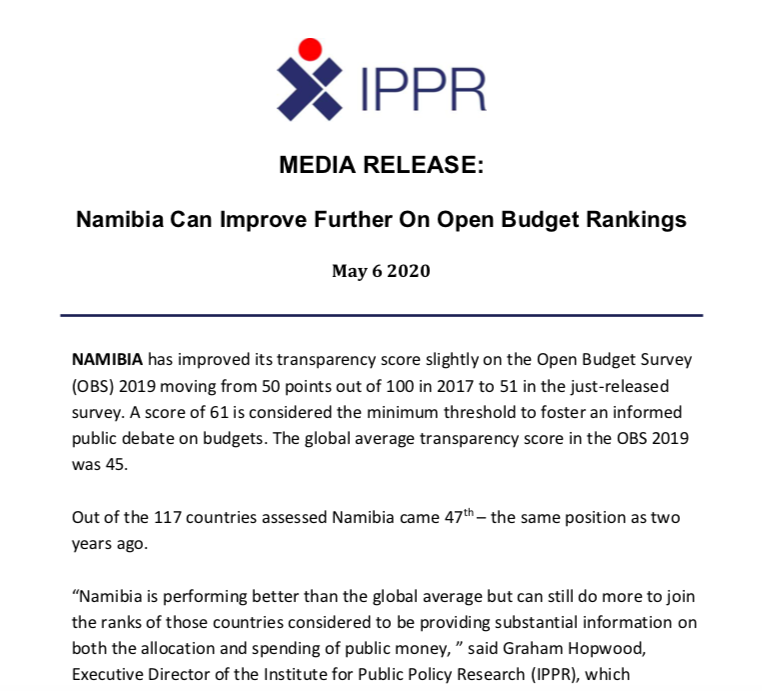
Namibia has improved the transparency and availability of its budget information slightly but offers no formal opportunities for the public to give their views on budget allocations and the execution of spending plans.
IJG Business Climate Monitor February 2020
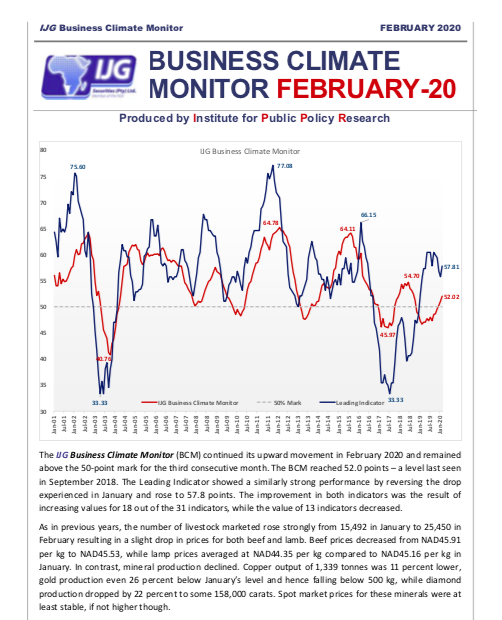
The IJG Business Climate Monitor continued its upward movement in February 2020 and remained above the 50-point mark for the third consecutive month. The Leading Indicator showed a similarly strong performance by reversing the drop experienced in January and rose to 57.8 points. The improvement in both indicators was the result of increasing values for […]
Procurement Tracker Namibia
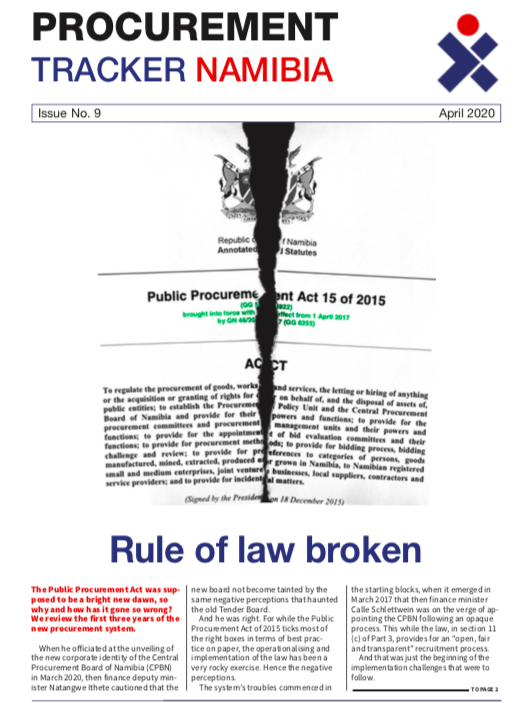
The April 2020 edition of the Procurement Tracker Namibia bulletin examines how the system based on the Procurement Act passed in 2015 has performed over the last three years. In addition, the bulletin looks at how the COVID-19 pandemic has impacted procurement in Namibia.
Quarterly Economic Review – January-March 2020
This quarterly economic review from the IPPR examines developments that took place in the first quarter of 2020 and includes a special focus on Namibia’s recent record on attracting Foreign Direct Investment. Produced with the support of the Hanns Seidel Foundation
IJG Business Climate Monitor January 2020
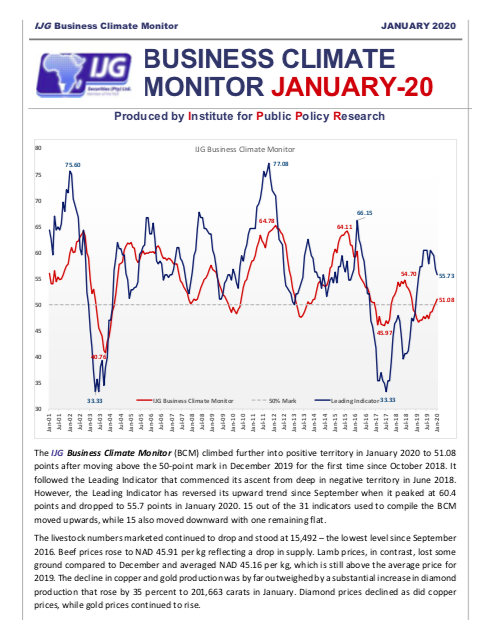
The IJG Business Climate Monitor (BCM) climbed further into positive territory in January 2020 to 51.08 points after moving above the 50-point mark in December 2019 for the first time since October 2018.
The APRM Process in Namibia – A Call For Action
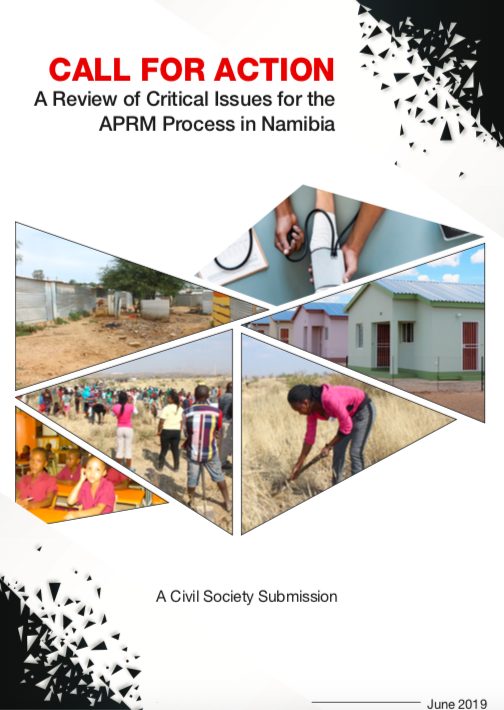
In January 2017, Namibia became the 36th African Union (AU) member state to voluntarily accede to the African Peer Review Mechanism (APRM). The APRM’s rules require that civil society is meaningfully involved in each country’s review process. Together with government and the private sector, the country’s civil society sought to diagnose governance strengths and weaknesses, […]
Drought, Water Shortages & Climate Change in Namibia
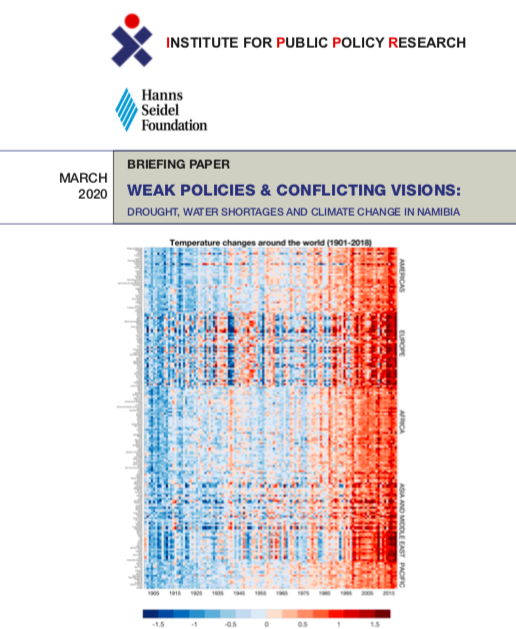
This paper addresses three linked themes – drought, water shortages & climate change in Namibia
IJG Business Climate Monitor December 2019

In December 2019 the IJG Business Climate Monitor (BCM) climbed to 51.61 points – its highest level since September 2018. The BCM remained above the 50% mark for a second month in a row – a sign of much-needed positivity. However, the Leading Indicator, which predicts future trends, lost momentum and slipped back below 60 […]
Election Results 2019
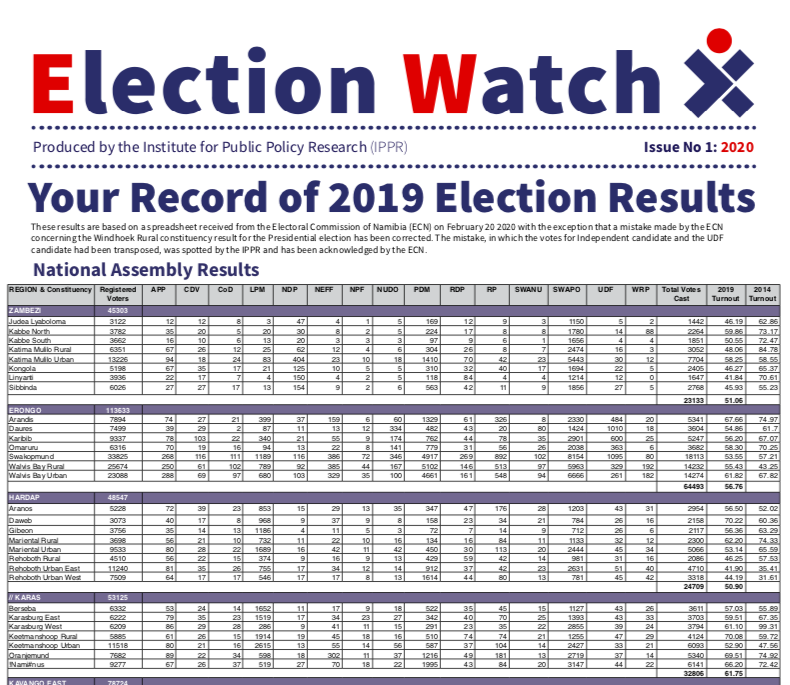
The IPPR’s Election Watch bulletin from March 2020 which features the final results for the 2019 National Assembly and Presidential elections.
Public Enterprise Rankings
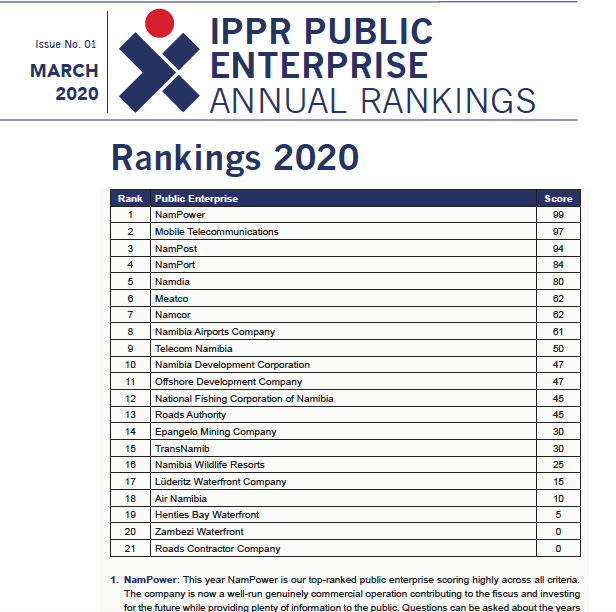
The Public Enterprise Annual Rankings is a new IPPR publication which will appear in the first quarter of each year. The rankings are based on an assessment of 21 commercial state-owned enterprises across ten criteria including profitability, availability of information, mismanagement and corruption, board stability, taxes and dividends paid, and investment in the economy. In […]
